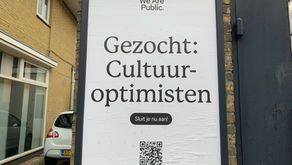Temple Church
- Judith Weir
- Dec 1, 2014
- 2 min read
After sitting behind the perfectly-engineered screens of Ty Cerdd's digital-audio studio on Monday, my recording venue on Friday was the Temple Church, built by the Knights Templar in 1185. The sound team constructed a homely mixing desk in the Vestry, whilst I settled down amongst some knightly effigies (pictured) to hear the BBC Singers under David Hill record my piece Missa del Cid.
We couldn't have had a more appropriate venue for this tale of battle and pillage carried out in the name of religion and chivalry; although I was able to describe it as 'slightly too modern' for the story of the Cid who was besieging Valencia and so on around 1094, a couple of decades before the order of Templars was founded.
The music, for 10 solo singers seemed just impossibly difficult when I wrote it in 1988. David Mason’s appropriately-named vocal ensemble Combattimento did a heroic job just to get through the premiere recording (which was made for a BBC documentary). In general the reaction was rather unenthusiastic – I felt I’d created a something of a musical white elephant. But over the years, from time to time, courageous people picked it up again. There was an unlikely stage production created by Astrid Vehstedt at La Monnaie, over a couple of seasons. Andrew Parrott made an orchestral version which was heard at the Proms. At Friday’s CD recording, several BBC Singers told me they had heard or performed the work before with smaller groups – Vocem, Exaudi, Blossom Street, Re:Sound. Given the work’s militaristic setting, these names sounded to me like the lists of regiments we see on war memorials, celebrated for their brave deeds. During the BBC recording, listening to some glorious singing in an incredible setting, I felt that the music had finally come of age, although it had taken just over a quarter-century to do so. This is what composers mean when we say (although we are scoffed at) that it takes time for new music to become ‘repertoire’.






